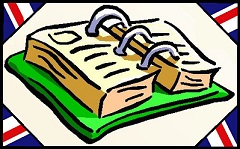CHRISTOPHER MARLOWE (1564 -1593)

SEBBENE IL PIU' CELEBRE DRAMMATURGO DELL'EPOCA TUDOR SIA WILLIAM SHAKESPEARE, UN'ALTRO GRANDE SCRITTORE DI QUEST'EPOCA (IL CUI TALENTO E' PARAGONABILE A QUELLO DI WILLIAM SHAKESPEARE) E' CERTAMENTE CHRISTOPHER MARLOWE.
LE SUE OPERE -MOLTO FAMOSE ED APPREZZATE ANCHE TRA I SUOI CONTEMPORANEI- FURONO SICURAMENTE DI ISPIRAZIONE A WILLIAM SHAKESPEARE.
SI RIPORTA QUI DI SEGUITO LA TRADUZIONE DI DUE ESTRATTI DA:
TAMBURLAINE THE GREAT (TAMERLANO IL GRANDE)
DOCTOR FAUSTUS (DOTTOR FAUST)
TAMBURLAINE THE GREAT (TAMERLANO IL GRANDE) DI CHRISTOPHER MARLOWE
TRADUZIONE DELL’ESTRATTO DALL'OPERA DI CHRISTOPHER MARLOWE “TAMBURLAINE THE GREAT” (TAMERLANO IL GRANDE) - PARTE 2, SCENA V
“TAMBURLAINE’S REGRET” (IL RIMPIANTO DI TAMERLANO)
TESTO IN INGLESE:
Here I began to march towards Persia,
Along Armenia and the Caspian Sea,
And thence unto Bithynia, where I took
The Turk and his great empress prisoners.
Then march'd I into Egypt and Arabia;
And here, not far from Alexandria,
Whereas the Terrene and the Red Sea meet,
Being distant less than full a hundred leagues,
I meant to cut a channel to them both,
That men might quickly sail to India.
From thence to Nubia near Borno-lake,
And so along the Aethiopian sea,
Cutting the tropic line of Capricorn,
I conquer'd all as far as Zanzibar.
Then, by the northern part of Africa,
I came at last to Graecia, and from thence
To Asia, where I stay against my will;
Which is from Scythia, where I first began,
Backward[s] and forwards near five thousand leagues.
Look here, my boys; see, what a world of ground
Lies westward from the midst of Cancer's line
Unto the rising of this earthly globe,
Whereas the sun, declining from our sight,
Begins the day with our Antipodes!
And shall I die, and this unconquered?
Lo, here, my sons, are all the golden mines,
Inestimable drugs and precious stones,
More worth than Asia and the world beside;
And from th' Antarctic Pole eastward behold
As much more land, which never was descried,
Wherein are rocks of pearl that shine as bright
As all the lamps that beautify the sky!
And shall I die, and this unconquered?
Here, lovely boys; what death forbids my life,
That let your lives command in spite of death.
TRADUZIONE IN ITALIANO:
Qui cominciai a marciare verso la Persia,
lungo l’Armenia ed il Mar Caspio,
E di là verso la Bitinia, dove presi
Prigionieri la Turchia e la sua grande imperatrice.
Poi marcia in Egitto e in Arabia;
E qui, non lontano da Alessandria,
poiché (mentre) il Tirreno ed il Mar Rosso s’incontrano,
essendo distanti meno di cento leghe piene,
volevo tagliare un tunnel ad entrambi,
(con cui) gli uomini potevano velocemente arrivare (approdare) in India.
Da là nella Nubia vicino al Lago Borno
E così lungo il mare Etiope
Tagliando la linea del Tropico del Capricorno,
Conquistai tutto fino a Zanzibar.
Poi, attraverso la parte settentrionale dell’Africa,
Venni alla fine in Grecia, e da là
In Asia, dove sto contro la mia volontà.
Che è da Scizia, dove prima cominciai,
Avanti e indietro vicino cinquecento leghe.
Guardate qui, ragazzi miei: vedete che mondo di terra
Giace a occidente nel mezzo del Tropico del Cancro.
Entro la sorgente di questo globo terrestre,
Mentre il sole, declinando dalla nostra vista
Comincia il giorno con i nostri Antipodi!
E devo morire, e questo non conquistato?
Guadate, qui, figli miei, sono tutte miniere d’oro,
Inestimabili droghe e pietre preziose,
Più degne dell’Asia e del mondo accanto;
E dal polo Antartico a est vedete,
Mentre molta più terra, che non fu mai scorta,
Nella quale sono rocce di perle che brillano luminose
Come tutte le lampade che rendono bello il cielo!
E devo morire e questo non conquistato?
Qui, amabili ragazzi, quale morte vieta la mia vita
Che ha permesso alle vostre vite di comandare malgrado la morte.
DOCTOR FAUSTUS (DOTTOR FAUST) DI CHRISTOPHER MARLOWE
VERSIONE ITALIANA:
Il Dottor Faust fu composto nel 1588-1589, basato sulla sua biografia pubblicata nel 1587. Infatti la fonte della trama di Marlowe è la vera storia di George (o Johannes) Faustus, un rinomato mago tedesco che visse agli inizi del XVI secolo e la cui biografia fu pubblicata nel 1587.
Ma Marlowe trasformò Faustus da negromante in un insigne studioso e teologo. C'è un'ambizione che lo divora: il desiderio di conoscenza. E' ora ad un punto critico della sua vita. Vende la sua anima al diavolo in cambio di 24 anni di piacere e di conoscenza soprannaturale. Col passare del tempo Faust prendere coscienza della natura umana: egli capisce che è solo un uomo, destinato a morire e, a causa del suo patto con il diavolo, alla dannazione.
ENGLISH VERSION:
Doctor Faustus was composed in 1588-89, based on his biography published in 1587. The source of Marlowe’s plot was the real story of George (or Johannes) Faustus, a reputed German magicianvwho lived at the beginning of the 16th century and whose biography was published in 1587.
But Marlowe transformed Faustus from a necromancer to a distinguished scholar and theologician. There’s an ambition that devours him: the desire of knowledge. He’s now at a critical point in his life. He sells his soul to the devil in return for 24 years of pleasure and supernatural knowledge. As time passes Faustus becomes aware of human nature: he understands he’s only a man, destined to die and, because of his deal with the devil, to damnation.
TESTO IN INGLESE E TRADUZIONE IN ITALIANO DI UN ESTRATTO DELL'OPERA DI CHRISTOPHER MARLOWE: FAUSTUS'S LAST HOUR (L'ULTIMA ORA DEL FAUST).







